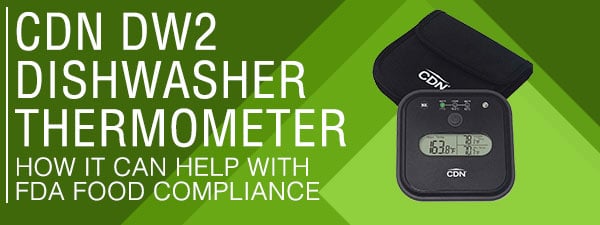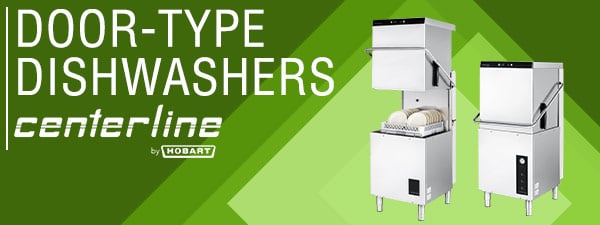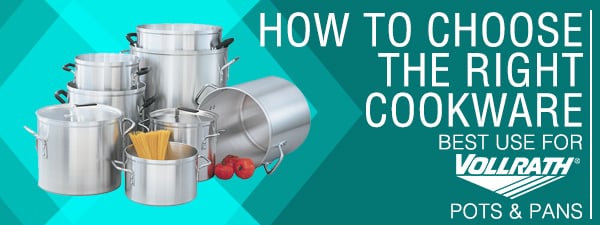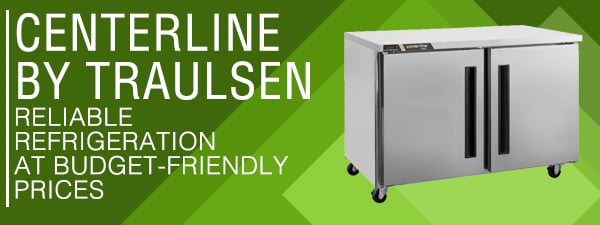What is CFSP Certification and Why Does it Matter?
- Dec 1, 2016
- 0 Comments
CFSP (Certified Food Service Professional)
CFSP is a professional certification specific to the foodservice industry. This certification was created in 1987, and is a vital credential for foodservice professionals. The training ensures that these individuals are more knowledgeable and qualified than others in the industry, allowing their organizations to compete more effectively and provide superior service.
The objectives of the CFSP Credentials are comprehensive:
- Raise the professional standards and quality of the foodservice industry
- Encourage continuing educational development among foodservice professionals
- Foster self-assessment by offering guidelines for achievement in the foodservice industry
- Award special recognition to those foodservice professionals who have demonstrated high levels of competence and ethics.
To ensure the integrity of the CFSP credentials, one cannot be certified unless the individual can prove knowledge of a variety of foodservice subjects, as well as documented proof of top level experience within the industry.
The process for becoming CFSP certified is managed and overseen in the US by the NAFEM, the North American Association of Food Equipment Manufacturers. In the UK, it is managed by CESA, the Catering Equipment Suppliers Association.
The CFSP designation is a universally recognized and respected industry standard for knowledge and experience about the foodservice industry. Consumers working with CFSP-accredited foodservice individuals should feel extra confident that they are dealing with the best, most qualified people in the industry
Experience Qualifications for CFSP Certification
A point system is in place that awards points based on general education, continuing education pertaining to the foodservice industry, participation in foodservice events and trade shows, and media recognition in the foodservice community. Once an individual has accumulated 35 points, they are then eligible to move onto the the knowledge portion of the certification process and can apply to take the exam for CFSP certification.
The Knowledge and Exam Portion for CFSP Certification
Once the required amount of experience points has been attained, an individual has two options available to earn the CFSP certification credential.
- CFSP In-person Course Package: Each August, a day-long CFSP overview seminar is offered at NAFEM's Chicago headquarters office. Class is one day long (8AM to 5PM). The test is offered the following day and allows the participant 2 ½ hours to complete the exam.
- CFSP Online Course Package: The Certified Foodservice Professional online course allows you to study the material covered in the test at your leisure. The test is then administered manually.
The course package is $775.00 and includes a text book, sample questions, and a glossary of terms to study.
There are three levels of achievement in the Certified Foodservice Professional program. You advance to new levels of certification as you earn the required number of points.
- Level III: 35 (minimum number of points required to take the CFSP exam) to 54 points accumulated
- Level II: 55 to 74 points accumulated
- Level I: 75 points accumulated
Maintaining your CFSP designation requires that you participate in point earning each year, maintain at least 2 new points each year, and pay dues of $50.00 every two years.
Rapids Wholesale is proud of their commercial kitchen design department at Rapids Contract and Design, where many individuals are CFSP-accredited, along with other design accreditations.
For information or to begin the process of earning your CFSP certification visit the NAFEM website.
The following is the course material covered in the Equipment & Supplies Overview Seminar, based on the CFSP textbook An Introduction to the Foodservice Industry.
Chapter 1: The Foodservice Industry—An Overview
Chapter 2: The Channels of Distribution Within the Foodservice Industry
Chapter 3: Foodservice Facility Design
Chapter 4: Utilities—Basic Design Considerations
Chapter 5: Kitchen Ventilation—Basic Design Considerations
Chapter 6: Approval & Third-Party Testing Agencies
Chapter 7: Food Safety & Sanitation
Chapter 8: Food Production—A “Process” Overview
Chapter 9: Receiving & Storage Design & Equipment
Chapter 10: Ingredient Preparation—Equipment Considerations
Chapter 11: Cooking Equipment—Types, Sizes, Applications & Specification Considerations
Chapter 12: Bakery Operations, Equipment & Supplies
Chapter 13: The Service Area—Where Food, Beverages & Service Come Together
Chapter 14: “Front-of-the-House” Design Considerations
Chapter 15: Effective Dishroom Operations & Equipment
Chapter 16: Cook-Chill Production Methods, Systems & Specialized Equipment
Chapter 17: Specialty Markets & Their “Special” Equipment & Supplies Requirements
Chapter 18: Smallwares
Chapter 19: New and Emerging E & S Technology
Chapter 20: Sustainability Efforts in the Foodservice Industry
Below is the CFSP Worksheet of points awarded per category.
|
CFSP Point Accumulation Worksheet |
Current Points Per Event/Year |
|
Education Level - (Highest Level only) |
|
|
High School Graduate |
1 |
|
Associate Degree |
2 |
|
Culinary Program |
4 |
|
Bachelor's Degree |
4 |
|
Master's Degree |
6 |
|
MBA |
|
|
Advanced Degree |
|
|
Juris Doctorate |
7 |
|
Doctorate |
12 |
|
Foodservice Industry Participation |
|
|
NAFEM (Maximum 24 points) |
8 |
|
NRA (Maximum 12 points) |
4 |
|
Industry Trade Shows (e.g., IHMRS, RCA, SCAA, etc.) |
2 |
|
International Shows (e.g., Food & Hotel China, FHA Singapore, Hotelympia, etc.) |
1 |
|
Buying Group Conference Only (ABC, CPG, Excell, IFED, ISE, NAFED, NESA, NexGen, NISSCO, PRIDE and SEFA) |
2 |
|
Regional Shows (ACF, DMA, SNA, etc.) |
1 |
|
Allied Assoc Conference (CFESA, FEDA, FCSI, MAFSI, SNA, NACUFS, etc.) |
2 |
|
Committee Member (per year) |
1 |
|
Continuing Education |
|
|
E&S Overview |
2 |
|
CFSP Study Group |
1 |
|
CPMR (101) |
2 |
|
CPMR (201) |
2 |
|
CPMR (301) |
4 |
|
ServSafe® Certification |
2 |
|
Seminars |
|
|
NAFEM Education Sessions |
2 |
|
Industry/Education Sessions |
2 |
|
Manufacturer's Seminars ________________ |
1 |
|
Utility/Certification Agency Training |
1 |
|
Other __________________ |
1 |
|
Recognition |
|
|
Articles Written (Maximum 12 points) |
2 |
|
Speaker/Instructor (Maximum 12 points) |
2 |
|
Volunteer/Community (per year) |
1 |
|
Industry Honors |
2 |
It should be noted that all claims for point earnings must be documented and that NAFEM will review each claim.



















